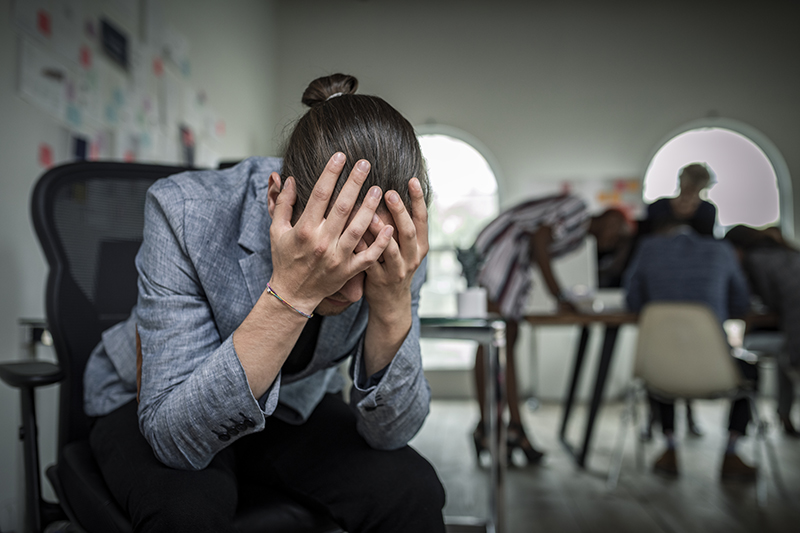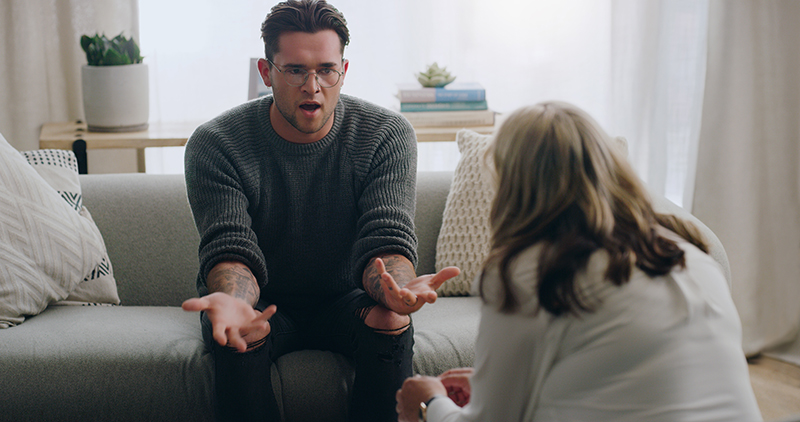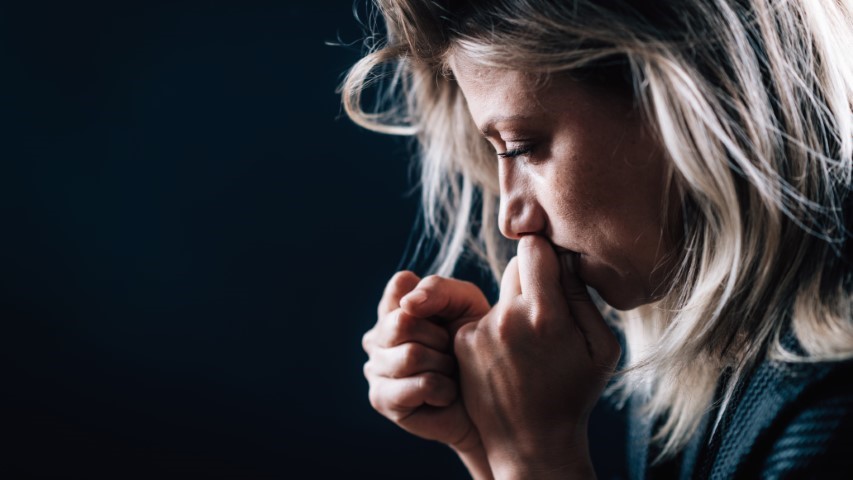Bio-degradable cards
Every card imaginable!
|
Bio-degradable cards Every card imaginable! How The Card Project UKs Medical ID Cards Can Help Ease Your Anxiety
What is Anxiety and What Causes It?Anxiety is a natural response to stress, but it becomes a problem when it starts interfering with daily life. Everyone feels anxious from time to time—before a test, a job interview, or a big life change. For most people, these feelings come and go and can even help you stay alert or focused. But for some, anxiety is persistent, intense, or difficult to manage, making it hard to sleep, concentrate, or enjoy everyday activities. Anxiety can show up in different ways:
Physical and Emotional SymptomsAnxiety often affects both the body and the mind. Common physical signs include:
Emotional symptoms can include:
Common Triggers and Early Warning SignsAnxiety usually develops from a combination of factors. Some common triggers include:
Early warning signs that anxiety may be increasing include frequent worry, difficulty sleeping, avoidance of certain situations, feeling on edge, or increased irritability. Recognising these signs early can help people take steps to manage anxiety before it becomes overwhelming. Internal and Genetic FactorsInternal factors also contribute to anxiety. Changes in brain chemistry, hormonal shifts, or underlying medical conditions can make someone more susceptible. Genetics can play a role too—people with a family history of anxiety may be more likely to experience it themselves. Personality traits, like being highly self-critical or prone to overthinking, can further increase the risk. Understanding that anxiety arises from a mix of life experiences, biology, and personality helps to reduce stigma. It shows that anxiety is not a personal weakness but a condition that can be managed with support, coping strategies, and, if needed, professional help. 
What Does Anxiety Feel Like?Anxiety can affect both your body and your mind. Physically, it might cause:
Mentally and emotionally, anxiety can feel like:
Everyone experiences anxiety differently, and the intensity can vary from day to day. Recognising your own physical and emotional signs can help you take action early, before anxiety becomes overwhelming. What is Social Anxiety?Social anxiety is a type of anxiety focused on interactions with others. It goes beyond normal shyness or nervousness. People with social anxiety often fear being judged, embarrassed, or rejected in social situations. Common triggers include:
Social anxiety can lead to avoidance of certain situations, which may make everyday life more limiting and can contribute to feelings of isolation. It is a persistent condition, not just occasional nervousness. Other Common Types of Anxiety
Recognising the type of anxiety you experience can make it easier to identify triggers, understand your symptoms, and find coping strategies that work for you. 
How to Reduce Anxiety ImmediatelyWhen anxiety spikes, simple strategies can help calm your mind and body quickly:
These strategies don’t remove anxiety completely but can give you control in the moment and prevent symptoms from escalating. Long-term Strategies for Managing AnxietyLong-term management usually combines several approaches:
When to Seek Professional HelpIt’s important to know when anxiety may require professional support. Consider consulting a GP or mental health professional if:
Seeking help early often makes management easier and reduces the risk of symptoms worsening. 
Is Anxiety a Disability or a Mental Illness?Is Anxiety a Disability?In the UK, anxiety can be considered a disability under the Equality Act 2010 if it has a long-term and substantial effect on daily life. This means the condition usually lasts, or is expected to last, at least twelve months and significantly affects tasks such as working, studying, social interaction, or basic daily activities. For some people, severe anxiety may make it difficult to leave the house, manage personal care, concentrate, or complete work tasks. If this applies, legal protections may be available. Employers are required to consider reasonable adjustments, such as flexible working, changes to workload, or quieter workspaces, to support someone living with anxiety. Recognising anxiety as a disability ensures that people have access to support and accommodations that help them function safely and confidently. Is Anxiety a Mental Illness?Anxiety becomes classified as a mental illness when symptoms are persistent, interfere with daily life, and last for several months. Chronic anxiety can affect sleep, work, relationships, decision-making, and physical health. Understanding anxiety as a mental illness highlights the need for proper care. It doesn’t imply weakness; instead, it acknowledges that the condition requires treatment and support. Management may include therapy, medication, lifestyle changes, or a combination of approaches. Recognising anxiety in this way encourages people to take symptoms seriously, seek help when needed, and access resources to improve daily functioning and quality of life. 
Anxiety and Neurodiversity, Support, and Alternative TherapiesIs Anxiety Neurodivergent?Neurodiversity usually refers to lifelong developmental conditions such as autism, ADHD, or dyslexia, where the brain processes information differently from what is typical. Anxiety by itself is not generally considered a neurodivergent condition, because it can develop at any stage of life and is influenced by multiple factors, including stress, genetics, and biology. That said, there is a significant overlap between anxiety and neurodivergent conditions. Many autistic people or those with ADHD experience heightened anxiety because everyday situations can feel overwhelming. Sensory input, social expectations, and changes in routine may trigger stress that builds into chronic anxiety. Recognising this overlap is important: anxiety may not be a core feature of a neurodivergent condition, but it frequently co-occurs and can significantly impact daily functioning. Can You Claim PIP for Anxiety?In the UK, Personal Independence Payment (PIP) is designed to help people aged 16 to State Pension age whose health conditions or disabilities make daily activities challenging. Severe anxiety can qualify if it substantially affects your ability to carry out tasks like getting dressed, preparing meals, leaving the house, managing social interactions, or coping with work responsibilities. Claiming PIP involves completing a detailed form and attending an assessment with a healthcare professional. The assessor will focus on the practical effects of anxiety on daily life, not just the diagnosis itself. Providing specific examples—such as needing support to leave home, avoid certain social situations, or manage panic attacks—can help clarify how anxiety impacts day-to-day functioning. PIP can then provide financial support and access to accommodations, which may reduce stress and improve independence. Does Hypnotherapy Work for Anxiety?Hypnotherapy is a therapeutic approach that uses focused relaxation, visualisation, and suggestion to address anxiety. In a hypnotherapy session, you enter a state of deep relaxation that allows your mind to focus and become more receptive to positive behavioural changes. Research shows hypnotherapy can help reduce anxiety symptoms, particularly when anxiety is linked to specific triggers, such as phobias, social situations, or stress-related physical tension. Many people find it helps calm their mind and body, making it easier to use other coping strategies like mindfulness or breathing exercises. However, hypnotherapy is not a replacement for therapy or medication for chronic anxiety. Its effectiveness varies between individuals and is often greatest when integrated into a broader anxiety management plan that includes lifestyle adjustments, psychotherapy, or medical support. Why Considering These Approaches MattersUnderstanding the relationship between anxiety, neurodivergence, and available therapies helps people make informed choices about their support. Recognising how anxiety interacts with other conditions can guide treatment decisions, while practical tools like PIP or hypnotherapy provide additional options for managing daily life. The key is a holistic approach: combining knowledge of your symptoms, professional support, and practical strategies often leads to better outcomes than relying on a single method alone. How Our Anxiety Medical ID Cards Can HelpLiving with anxiety often means dealing with moments when stress becomes overwhelming, making it difficult to explain your needs quickly. Our Anxiety Medical ID Cards provide a clear, easy-to-access way to communicate essential information to healthcare professionals, caregivers, or anyone assisting you in an emergency. The cards are credit card-sized, so they fit comfortably in a wallet or bag, and they are made from biodegradable plastic, giving you a durable and environmentally friendly option to carry every day. Practical Benefits in Daily Life
How It Complements Other StrategiesOur Anxiety Medical ID Cards do not replace therapy, medication, or self-care routines. Instead, they add a practical layer of support, helping you feel prepared and more in control of your day-to-day life. They can be especially helpful when combined with the strategies covered in this guide, including breathing exercises, grounding techniques, therapy, and lifestyle adjustments. Carrying the card is a simple but meaningful step toward managing anxiety. It helps you communicate your needs clearly, reduces uncertainty in stressful situations, and provides reassurance both to you and the people supporting you. Take control today by getting your Anxiety Medical ID Card, and have the confidence that your essential information is always accessible when you need it most.
© 2024 The Card Project Uk Ltd
VAT: 453 2087 06
|